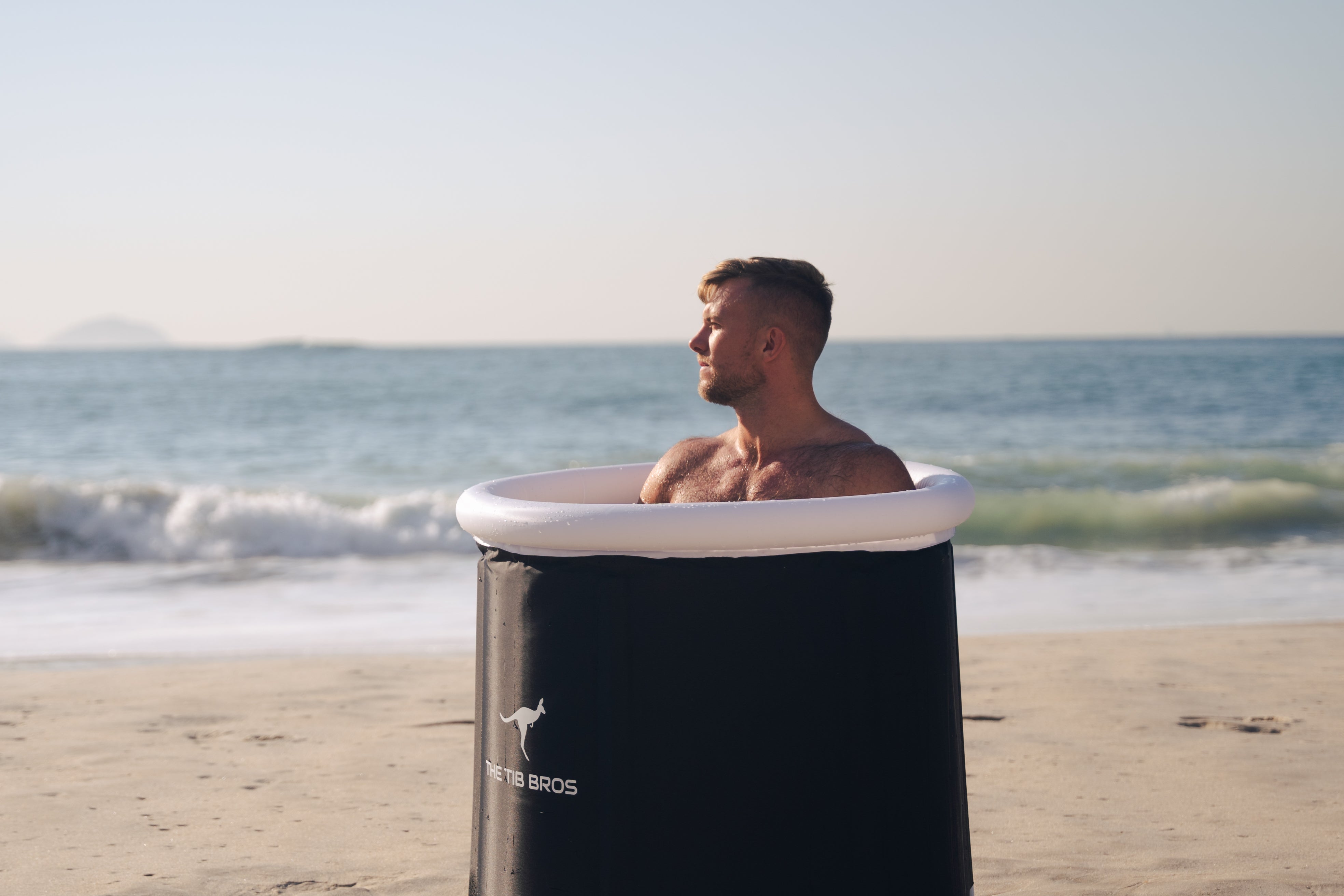After an intense workout, athletes are often on the lookout for effective recovery strategies to soothe sore muscles and expedite the recovery process. Enter the ice bath—a time-honored recovery technique that involves immersing the body in icy water for a short period. While the thought of submerging oneself in frigid temperatures may seem daunting, the benefits of using ice baths extend far beyond mere discomfort. In this article, we'll delve into the surprising benefits of incorporating ice baths into your post-exercise routine and how they can help you recover faster and perform at your best.
1. Reduced Muscle Soreness and Inflammation:
One of the primary benefits of using ice baths is their ability to alleviate muscle soreness and inflammation following intense physical activity. The cold temperature of the water causes vasoconstriction, which narrows blood vessels and reduces blood flow to the affected muscles. This decrease in blood flow helps mitigate inflammation and swelling, providing relief from post-exercise soreness and discomfort. Additionally, ice baths can help flush out metabolic waste products, such as lactic acid, which can accumulate in muscles during exercise and contribute to soreness.
2. Accelerated Muscle Recovery:
Ice baths are renowned for their ability to expedite the muscle recovery process, allowing athletes to bounce back more quickly from strenuous workouts or competitions. The cold temperature of the water constricts blood vessels, which slows down the inflammatory response and reduces the production of inflammatory cytokines. As a result, muscle damage is minimized, and the repair and regeneration process can occur more efficiently. This accelerated recovery can help athletes get back to training sooner and maintain peak performance levels over time.
3. Improved Muscle Performance:
In addition to promoting faster recovery, ice baths can also enhance muscle performance in subsequent training sessions or competitions. By reducing muscle soreness and fatigue, ice baths help athletes feel fresher and more energized, allowing them to train at higher intensities and volumes without risking overuse injuries or burnout. Furthermore, the analgesic effect of the cold water can temporarily numb pain receptors, enabling athletes to push through discomfort and perform at their best when it matters most.
4. Enhanced Psychological Well-being:
Ice baths not only benefit the body but also the mind, providing a refreshing and invigorating experience that can boost mood and mental clarity. The shock of the cold water triggers the release of endorphins, neurotransmitters that act as natural painkillers and mood elevators. This "ice-induced euphoria" can leave athletes feeling rejuvenated and revitaliz
sed, ready to tackle the challenges of training or competition with renewed enthusiasm and focus. Additionally, the ritual of taking an ice bath can serve as a calming and meditative practice, allowing athletes to unwind and decompress after a demanding workout.
5. Injury Prevention:
By reducing muscle soreness, inflammation, and fatigue, ice baths can also play a role in preventing overuse injuries and chronic pain conditions associated with repetitive athletic activities. By incorporating ice baths into their recovery routine on a regular basis, athletes can maintain optimal muscle health and function, reducing the risk of strain, sprains, and other soft tissue injuries. Furthermore, ice baths can help mitigate the negative effects of heat and humidity on performance, particularly in hot climates or during summer training camps.
Conclusion:
Ice baths may seem daunting at first, but the benefits they offer in terms of recovery, performance enhancement, and injury prevention make them a valuable tool for athletes of all levels. Whether you're a professional athlete preparing for competition or a recreational fitness enthusiast pushing your limits in the gym, incorporating ice baths into your post-exercise routine can help you recover faster, perform better, and stay healthier in the long run. So, the next time you're feeling the effects of a tough workout, consider taking the plunge into icy waters—it may just be the secret weapon you need to take your fitness to the next level.
Moore, E., Fuller, J.T., Buckley, J.D. et al. Impact of Cold-Water Immersion Compared with Passive Recovery Following a Single Bout of Strenuous Exercise on Athletic Performance in Physically Active Participants: A Systematic Review with Meta-analysis and Meta-regression. Sports Med 52, 1667–1688 (2022). https://doi.org/10.1007/s40279-022-01644-9
Roberts LA, Raastad T, Markworth JF, et al. Post-exercise cold water immersion attenuates acute anabolic signalling and long-term adaptations in muscle to strength training. J Physiol. 2015;593(18):4285-4301. doi:10.1113/JP270570

Share:
Why Runners Need to Train their Tibialis Anterior to Prevent Shin Splints
The Reverse Squat Strap: A Key Tool in Knees Over Toes and ATG Methods- Aiding Athletic Performance